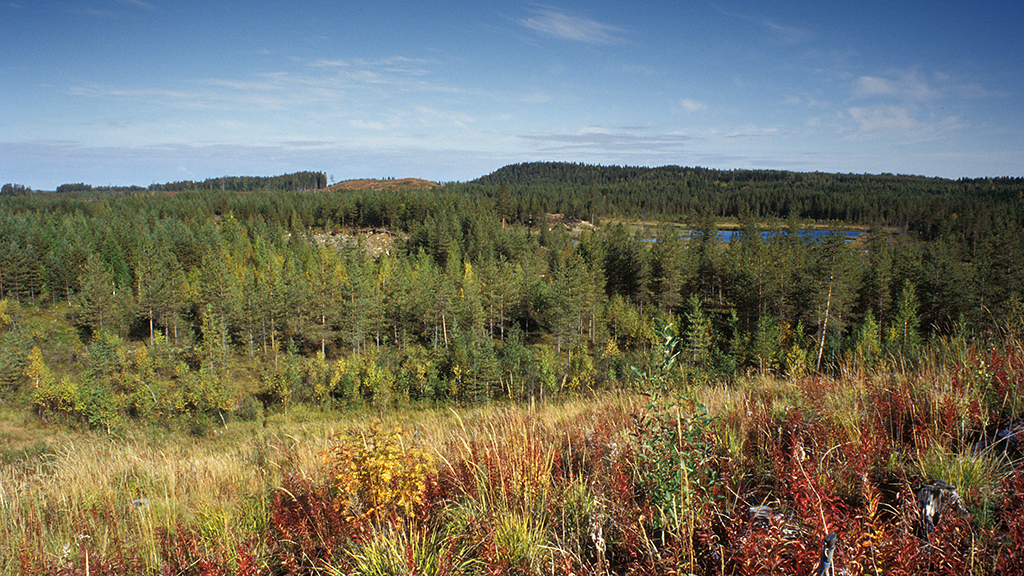How Does Mineral Exploration Impact the Environment? Lack of Research Makes Impact Assessment More Difficult
The Geological Survey of Finland GTK and the Finnish Environment Institute (Syke) have launched a research project to examine the environmental impacts of mineral exploration. This research focuses particularly on the impacts of mineral exploration drilling on groundwater, watercourses and biodiversity. The aim is to increase researched information to support decision-making and to develop methods for reducing the environmental risks of mineral exploration.

So far, there has been little research available on the environmental impacts of mineral exploration, which has complicated decision-making by the authorities, companies and sparked conflicts between the parties and Non-Governmental Organisations (NGOs). The project investigating the environmental impacts of mineral exploration aims to improve the availability of information by producing objective and up-to-date research data, especially on the environmental impacts of drilling.
The research includes examining the possible adverse effects of drilling chemicals, the characteristics and impacts of drill sludge on the environment, and the impacts of drilling on groundwater, living organisms and natural habitat types. For example, there has previously been only indirect information available on the environmental impacts of drilling chemicals, which is why there is a clear need to investigate their actual impacts.
New methods for protecting groundwater and natural habitat types
The project is developing a research concept that can be used to assess the status of groundwater and surface waters at different stages of mineral exploration and at various scales. In the early stages of mineral exploration, it is common that only a small amount of drilling is done across large areas. The most promising sites may reach a situation where a high amount of drilling is carried out in a small area. The approach of the research concept aims to identify risk areas in advance and guide mineral exploration so that the impacts on groundwater and water systems are kept to a minimum.
The research also examines the sensitivity of different natural habitat types to drilling in different seasons and the ability of these habitats to recover. Especially wetlands, watercourses and other smaller, sensitive natural habitat types may suffer significant harm, but so far there has been very limited information on the duration of the impacts or the possibilities of restoration.
Drilling chemicals and drill sludge under examination
The additives used in drilling and the drill sludge, made up of rock material, that rises to the surface in drilling are central elements of mineral exploration, but their environmental load has been researched very little so far. The project will carry out a survey of the drilling chemicals used and the compounds they contain.
Standard toxicity tests are applied to the environmental risk assessment of drilling chemicals. The results are then used to select the most usable and recommended methods for authorities and companies. In addition, DNA-based methods are piloted for biodiversity monitoring, which will be compared with traditional methods for monitoring environmental impacts. The aim is to develop cost-effective and suitable methods for assessing the environmental impacts of drilling.
Towards knowledge-driven and environmentally responsible mineral exploration
The project offers new and objective research on the environmental impacts of mineral exploration to decision-makers, authorities, companies, researchers and non-governmental organisations. It also establishes a foundation for a more transparent assessment of the actual impacts of mineral exploration and responsible management of environmental impacts.
The project investigating the environmental impact of mineral exploration is funded by the North Ostrobothnia Centre for Economic Development, Transport and the Environment (ELY Centre) from the regional and structural policy programme Innovation and Skills in Finland 2021–2027 of the European Regional Development Fund. Companies in the mineral exploration and mining sector are also participating in the funding.
Further information
Antti Pasanen, Senior Specialist
Geological Survey of Finland GTK
antti.pasanen@gtk.fi
tel. 029 503 3630
Matti Leppänen, Principal Researcher
Finnish Environment Institute (Syke)
matti.t.leppanen@syke.fi
tel. 029 525 1368
More information on the project website:
Environmental impacts of mineral exploration
Finnish Environment Institute website

